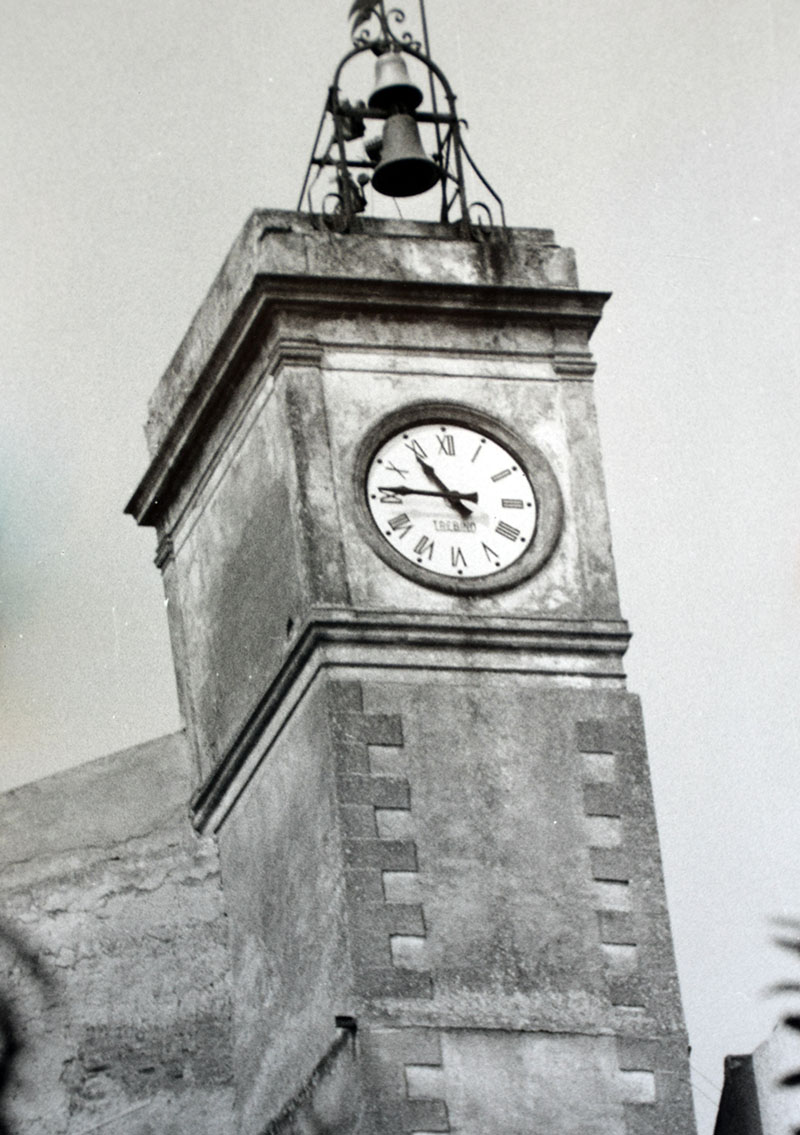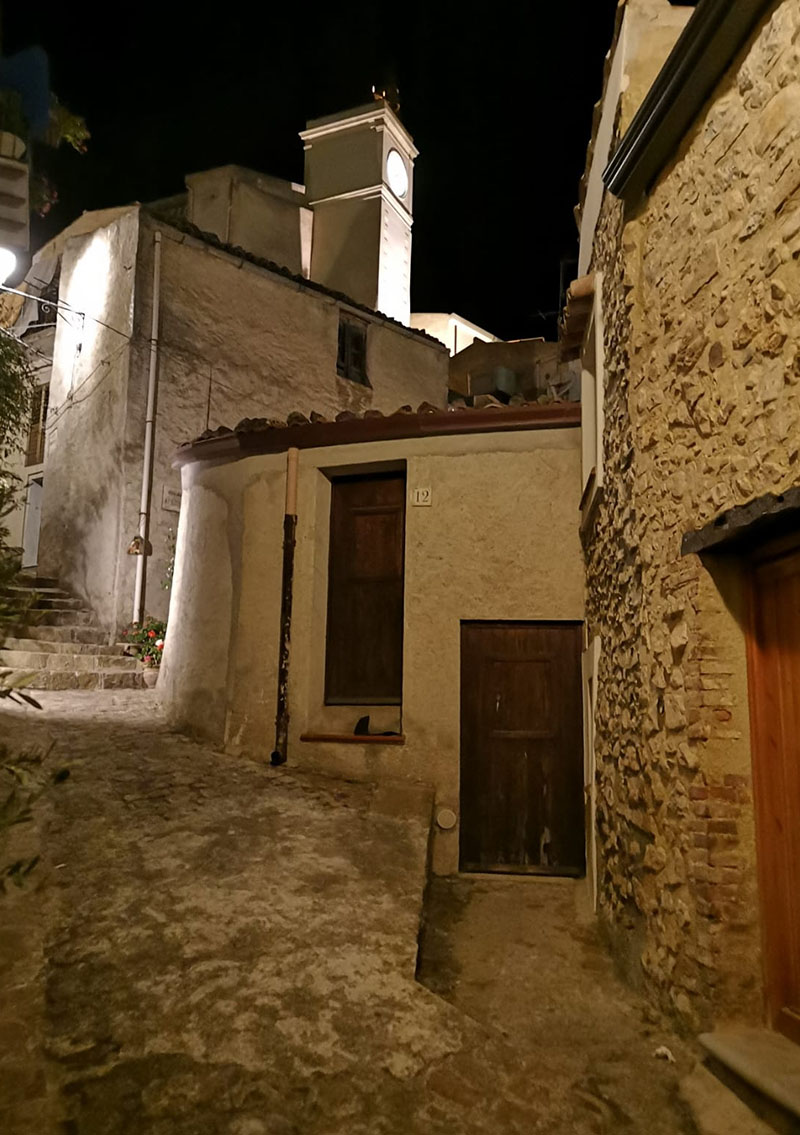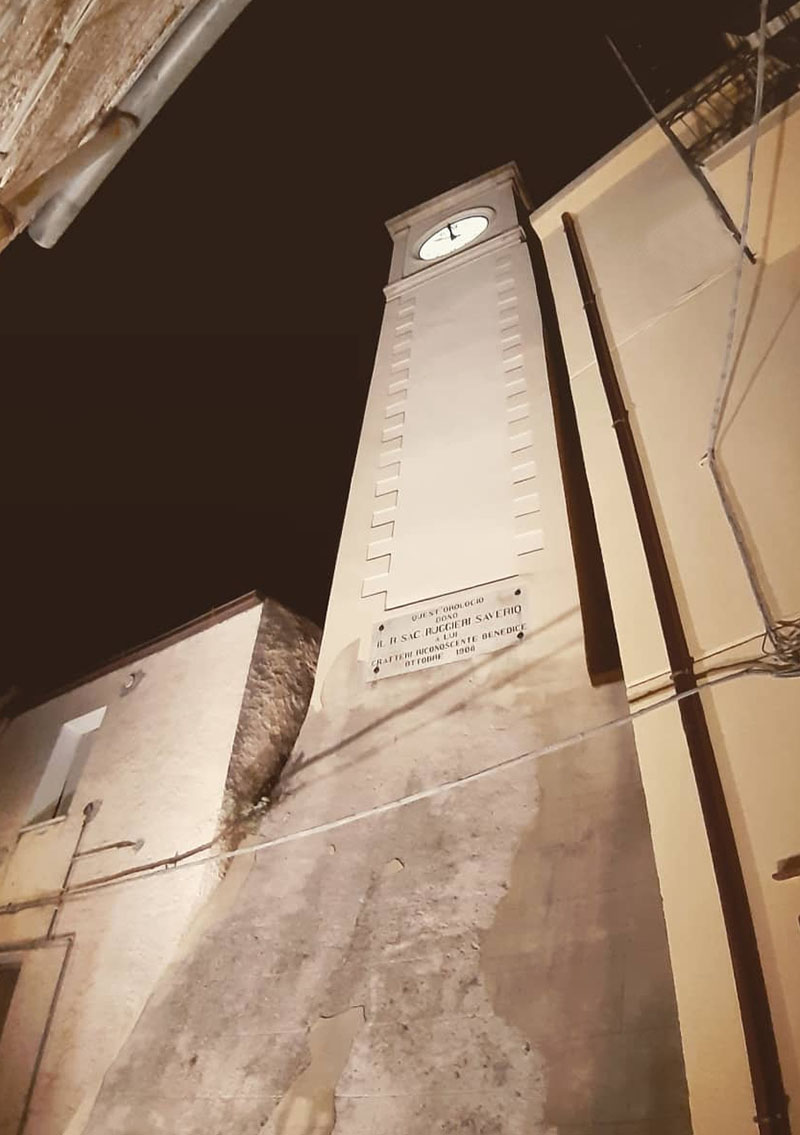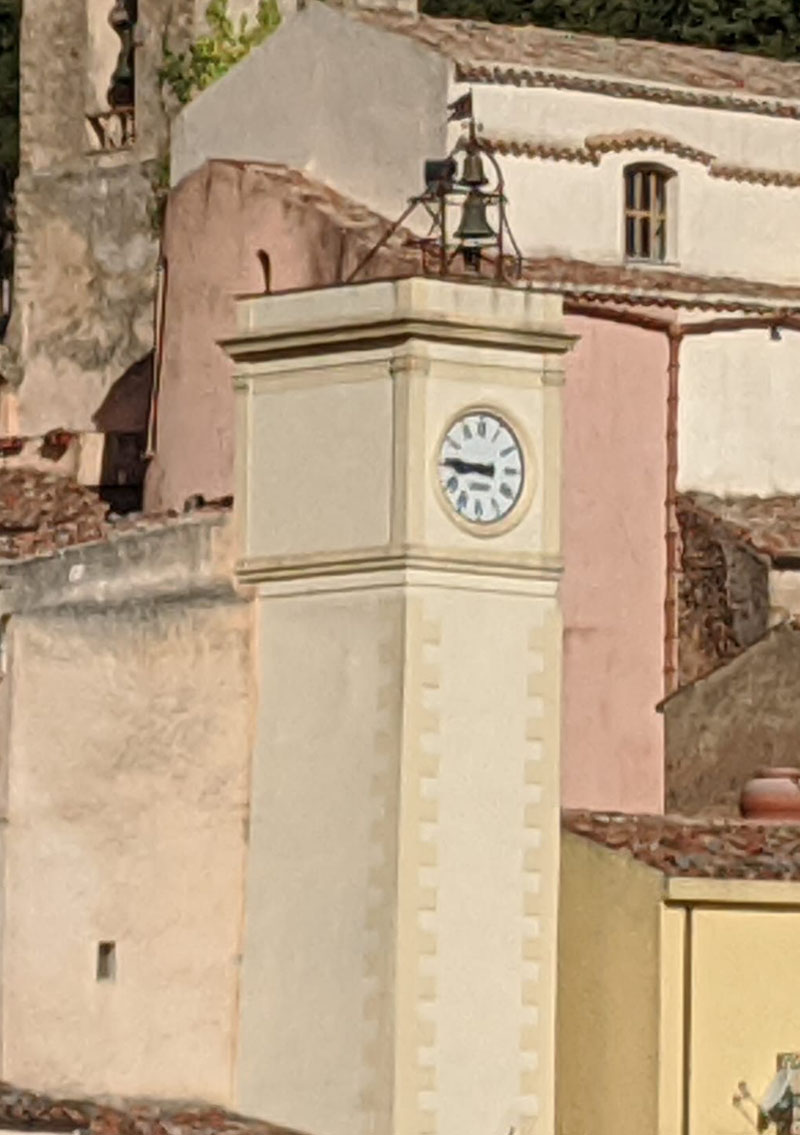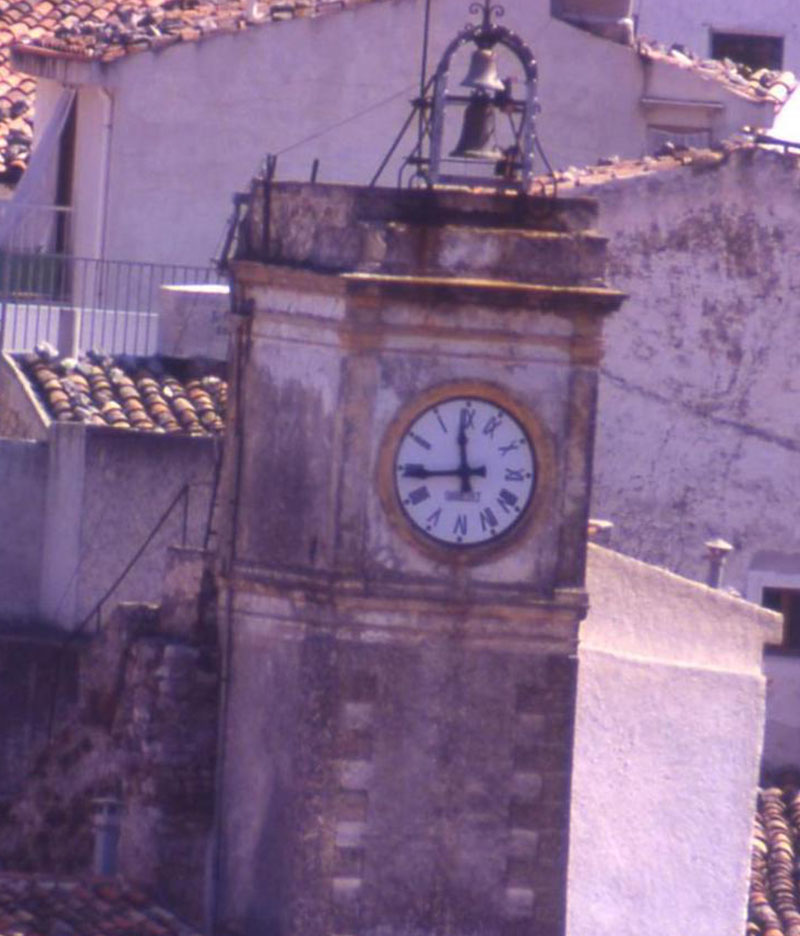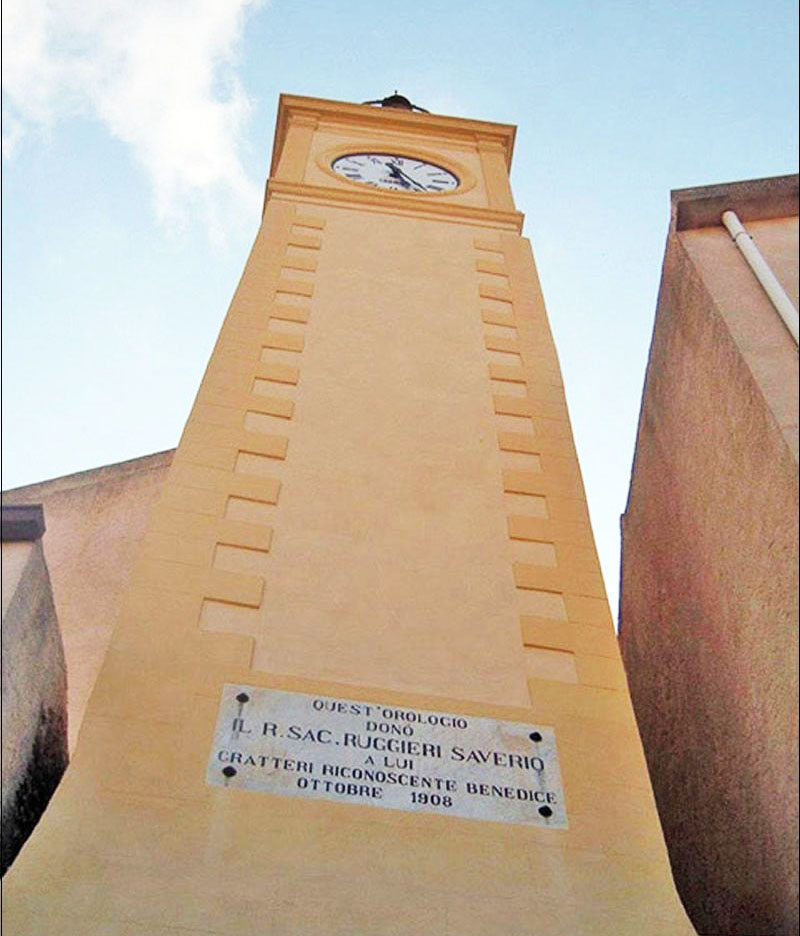Your basket is currently empty!
One of the symbols of the ancient madonite village is, without any doubt, the Clock Tower. In a community of agro-pastoral tradition the clock, with its one hundred chimes, it became the fulcrum that marked the rhythm of the poor farmer’s days at 8, at 12 (midday), at 8 p.m., at 10 p.m. (two hours), at midnight and at 3 a.m. (Ciccannìnu).
It was in fact called like that that span of time when two brothers, Ciccu and Ninu, used to get up to go work in the fields, this way they remained in the memory of the people from Gratteri. As far as the construction of the ancient watchtower, Scelsi himself hypothesizes it was built during the eighth century, the same time of the foundation of the castle.
Ganci Battaglia tells us that the time was originally marked by a slave blowing the horn at midday. It was located adjacent to the Saracen dsitrict. For this reason, it would certainly not be difficult to imagine a muezzin with a loud and powerful voice that would call the faithful five times a day, referring to the four cardinal points. It may be probable that the tower already existed in 1584 with the function of a clock, as can be seen from the sixteenth century Riveli of the State Archives of Palermo:
Antonino di Brucato capo di casa di anni 35, Lucretia sua migliere, Betta sua figlia, Salvature suo figlio, rivela una casa existenti in questa terra nella strata dello rogio conf. con la casa di Petro lo Cascio et di Mattheo Cirincioni(Archivio di Stato-Palermo, Riveli Tribunale Real Patrimonio, V. 1166, anno 1584).
Jo’ maria di Alongi capo di casa di anni 32, Joannella sua mugliere rivela una casa in dui corpi murata ne la ruga di lo Orlogio confina con Marco Tamburello et con lo orologio per lo prezzo di unci 20 (Archivio di Stato-Palermo, Riveli Tribunale Real Patrimonio, V. 1169, f. 721, anno 1607).



